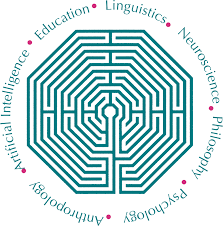Videos
Learn More About Henny Admoni
To the public at large, robots are often thought of as novelties, like the vacuum cleaner that can scoot around your house by itself. But Henny Admoni (Hen-nee Ad-MAH-nee), the A. Nico Habermann Assistant Professor in the Robotics Institute at Carnegie Mellon University, sees a future of social assistance robots and AI systems that can help us in new ways and will have applications to industries as wide ranging as auto manufacturing, health care, insurance and more. According to Admoni, in the near-future, robots and AI will be able to aid older people as they communicate with caregivers, help those with severe speech impairments regain their agency in conversation and enhance business efficiency and innovation.
Admoni is a multidisciplinary expert on understanding how, when brought together, human behavior and computer science enhance human-robot interactions (HRI) such as non-verbal communications and more efficient work processes. In addition to teaching a new generation of roboticists to put humans at the center of the robot development process, she advises organizational leaders including Chief Technology Officers – particularly those in health care, logistics and manufacturing – on the best ways to match humans with artificial intelligence, robots and machines.
“I’m very, very interested in how we can build robots and AI systems that are useful for people,” explains Admoni, the director of Carnegie Mellon’s Human And Robot Partners (HARP) Lab. “I take my training in cognitive science and my training in computer science to look at what we actually know about human beings and the way we perceive information, make decisions and learn things. I then use that information to build better robots and AI algorithms that can be used to help individuals and organizations.”
Integrating Robots and AI Into Everyday Life and Work
A believer in adapting robots to people in the human environment as opposed to forcing humans to adapt to robots, Admoni emphasizes the importance of predictability.
“An important aspect of integrating robots into environments like workplaces is that they need to be predictable,” she explains. “People need to be able to understand what it did, why it did what it did, and what it’s going to do next. This understanding will increase trust in robots and AI systems through transparency and explainability.”
It’s also vital, she says, to be able to deconstruct algorithms, allowing humans to apply their “digital coworkers” correctly and trust them.
“There are issues around the risk of people misusing the technology and either over-trusting it, under-trusting it or thinking that it can do more than it actually can. It’s important to clarify what technologies actually are capable of doing while also training your workers to understand what the technology is capable of.”
Teaching AI and Robots to Teach Themselves
According to Admoni, one of the keys to integrating intelligent systems into everyday life that developers are working on now is the ability for robots and AI systems to learn about their performance and adapt accordingly.
“It’s going to be important for robots to be able to recognize when they’re failing,” she points out. “Machine learning has such big promise because it enables us to not have to rely on getting everything right the first time; it allows our systems to experience things and adapt in the real world.”
The key to maximizing acceptance of robots and AI systems both in and out of the workplace is to emphasize that it’s not about replacing humans; it’s about fostering human-machine collaboration.
“A lot of the motivation of my work is ‘how do we leverage what robots can do for people to free up people to do the things that people are good at?’” Admoni explains. “Let robots take over the tasks that robots are the best at. Don’t try to replace the human interaction; try to make it so that robots partner with people who are doing jobs, thus making the people even better at their jobs.”
###
Henny Admoni is the A. Nico Habermann Assistant Professor in the Robotics Institute at Carnegie Mellon University and leader of its Human And Robot Partners (HARP) Lab. She studies how to develop intelligent robots that can assist and collaborate with humans on complex tasks like preparing a meal. She is most interested in how natural human communication, like where someone is looking, can reveal underlying human intentions and can be used to improve human-robot interactions. Her research has been supported by the U.S. National Science Foundation, the U.S. Office of Naval Research, DARPA, the Paralyzed Veterans of America Foundation and Sony Corporation. Her work has been featured on NPR, Voice of America News and WESA radio.
Admoni, who completed her postdoctoral fellowship at Carnegie Mellon’s Personal Robotics Lab, holds a PhD and MS in Computer Science from Yale University and a BA/MA joint degree in Computer Science from Wesleyan University.
Henny Admoni is available to advise your organization via virtual and in-person consulting meetings, interactive workshops and customized keynotes through the exclusive representation of Stern Speakers & Advisors, a division of Stern Strategy Group®.
The Importance of Explainable AI
According to Carnegie Mellon robotics researcher Henny Admoni, the key to successfully integrating artificial intelligence systems into an organization is to understand the system, how it works and why it does what it does. In this eye-opening presentation, Admoni outlines her research which shows that for AI systems to truly be effective, they have to be explainable, understandable and predictable. Audiences will learn why employees must be trained to understand what the technology is capable of to be able to adapt AI systems to humans as opposed to forcing AI on humans. Leaders will gain new insight into how to maximize the effectiveness of AI systems through true human-machine understanding.
What CTOs Need To Know About AI
“AI systems are not magic,” says Carnegie Mellon’s Human and Robot Partners (HARP) Lab director Henny Admoni. In this informative presentation, she’ll explain why it’s important for executives to make sure they have AI systems that are first and foremost transparent and explainable. Audiences will also learn why leaders must understand the potential shortcomings of AI systems. Leaders will gain insight into the limitations of specially trained systems, why they might not meet the use case for their organization and how to make sure they’re using the right system for the task at hand, ensuring the results meet an organization’s needs and expectations.
Why We Haven’t Seen Fully Driverless Cars Yet - And Probably Shouldn’t
There has been much talk over the last decade about a future with cars that drive themselves. But, according to robotics researcher Henny Admoni, we’re not there yet – and probably never will be. In this fascinating discussion, she’ll make the case for why she thinks the idea of totally removing people from the driving process is misguided. Using real world examples and research into human behavior, Admoni explains why the question of autonomous cars should be reframed as one of human-machine collaboration, not one where humans are removed entirely. Attendees will expand their understanding of both technological limitations and human behavior roadblocks that will likely result in truly driverless cars being something that remains relegated to our imagination.
The Future of Work: Humans and Machines Working Together
Workplaces are changing quickly with the increasing adoption of robot and AI systems. But Carnegie Mellon robotics Professor Henny Admoni says the future of work will be one where people aren’t replaced but are working collaboratively with robots and AI systems. In this encouraging presentation, she draws on real world examples of humans and machines working in concert to enhance and streamline processes. Audiences will gain a new appreciation for a bright future ahead where humans and machines work with each other, not against each other.
Building Trustworthy AI in a Skeptical World
Robots and AI systems are increasingly being used for a variety of tasks that help humans live easier, more fulfilling lives. But concerns remain about humans putting their trust in machines. In this presentation, Carnegie Mellon robotics researcher Henny Admoni explains why it’s important to design robots and AI systems with human-centered thinking and a sense of ethics to ensure humans trust the systems. Audiences will gain new insight into current research that takes human behavior into consideration when building robots and AI systems to make them more trustworthy.
Fighting the Diversity, Equity and Inclusion Gap in Technology
In 2018, 12.7% of the U.S. population was Black or African American, but only 4.2% of bachelor’s degrees, 4.8% of master’s degrees and 4.2% of PhD degrees were awarded to Black engineers. In this talk, Carnegie Mellon Professor Henny Admoni shares urgent steps organizations can take to increase diversity, equity and inclusion in the technology sector. She explains why a lack of diversity is a problem and outlines ways STEM education can be used to recruit, retain and mentor diverse talent, build community, remove systemic obstacles, enforce equitable policy and advocate for change.
The Promise of Robotic Health Care
While machines drive efficiencies in most industries, health care in particular continues to be revolutionized by new technologies that have applications in a variety of areas including elder care, internal medicine, mental health and mobility assistance. In this talk, Carnegie Mellon University Professor Henny Admoni discusses current and emerging innovations that are changing the face of health care. From helping people with motor impairments and other disabilities to helping doctors in the operating room, she shows how assistive robots and machines go beyond improving the quality of life for patients to enhancing how health care is delivered.
Supporting Black Scholars in Robotics
September 10, 2020
AI’s Rapid Advance Sparks Call for a Code for Robots
August 31, 2017

Helping People Through Space and Time: Assistance as a Perspective on Human-Robot Interaction
(Frontiers in Robotics and AI, January 2022)

HARMONIC: A Multimodal Data Set of Assistive Human-Robot Collaboration
(International Journal of Robotics Research, 2021)































